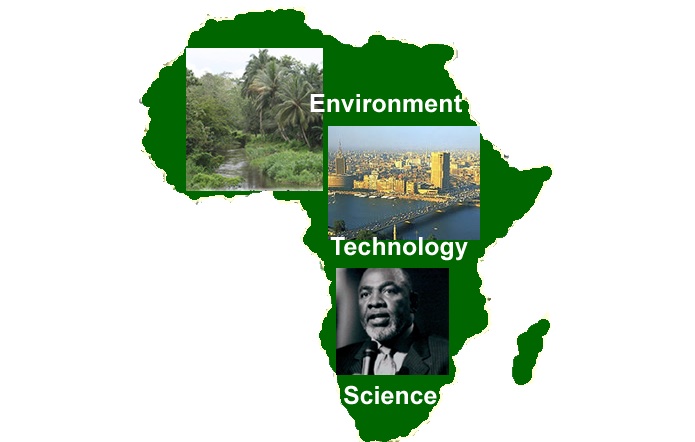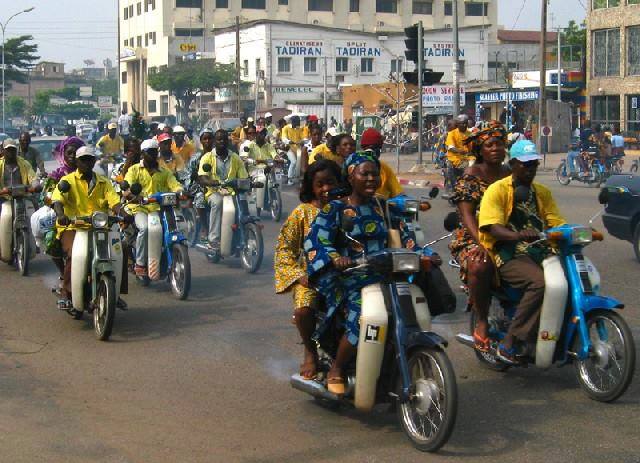By Nnimmo Bassey
In this article we will be looking at how development actions impact on the environment. The underpinning idea is that we should interrogate current paths of development in order to see if our ideas would lead to building our desired futures. Technological advances may reduce the amount of labour required for certain processes, but no matter how advanced, the human factor, the human labour, can only be negated at great peril.
Development is a highly politicised word. Ordinarily it should mean change from one form to another, as in metamorphosis or biological growth or as an improvement. When the term is used these days the tendency is to think about development as a linear process where progress is measured against what obtains in the so-called first world and the worst is seen in the so-called third world, better known as the Global South. This characterisation has built in the catch-up mentality among the nations of Africa. And the attempts to catch up has been consistently roadblocked through international financial instruments like the so-called Structural Adjustment Programmes (SAPs) or more blatantly as we have seen in the case of Lumumba, Cabral, Sankara and other critically conscious post colonial political leaders in Africa.
The catch-up mentality has led many leaders to see a jumping on the wagon of globalisation as the only way to make progress. Others have accepted that earning of foreign exchange, maintenance of foreign reserves and dependence on the Global North is the only way to ensure the inflow of foreign exchange and related goods that are often of the luxury sort. Thirdly, there has been a rigidly enforced notion and acceptance of neoliberal economic principles designed specifically to scuttle progress in nations that depend on raw materials exports for income.
Samir Amin’s statement on globalisation is good for to look at here: “The neo-colonial plan for Africa is indeed the worst pattern of integration in the global system. It cannot produce anything but the further decline in the capacity of African societies to meet the challenges of modern times… Globalisation does not offer to Africa any solutions to its own problems. Foreign direct private investments in Africa are, as everybody knows, negligible and exclusively concentrated in mineral and other natural resource sectors.”
Obviously there has to be another way of participating in the global system. According to Amin, Western agencies generally see countries that are dependent on foreign aid for survival of their state apparatus as “less developed.” We also note that when aid or certain supports are offered, nations fall over each other to prove that they are poor and highly indebted – if those are the conditions for qualification for a bailout.
In my book, To Cook a Continent, we looked at the pattern of infrastructural development in Africa and saw that the pattern remained one that aids exploitation and concluded that “Over the years the continent was charted for its usefulness, with railways and highways and ports facilitating extraction and packaging for waiting consumers and manufacturing plants in the North. This story remains the same to this day.”
Development and the Environment
Having clarity on the political underpinning of the concept of development is essential to understanding what drives the environmental actions of states and corporations. There are serious environmental implications associated with any development path nations adopt.
Dominant concepts of development have led to the division of the world into developed, developing or underdeveloped world. While a campaign for degrowth is rising in Europe due to the realisation that our planet cannot satisfy the current rate of production and consumption of goods, for us the struggle is for justice and the right to live in dignity. So, if we are talking of development in current terms we may as well be talking about imminent kicking in of post development in some societies and further underdevelopment in others.
If the industrialised nations will be incapable of securing resources to maintain present production and consumption, what is the probability that other regions, including Africa, would be reasonable to pursue a catch-up strategy by following a path that leads to a cul-de-sac. The question being grappled with in other spaces, especially in Latin America is whether we should be figuring out development alternatives or alternatives to development. This is the challenge we should tackle at this school also. Are there concepts and ways of life we have ignored while we accepted competition and exploitation as creeds? What do Ubuntu, harambe, buen vivir, Kumak kawsay speak to us?
What yields progress: Improvement of material condition? Or is progress the path illuminated by accumulation of wealth through acting as middlemen such as by the lumpen bourgeois? The wealth and resources of our middlemen or agents of global capital are not linked to the material transformation of society that would lead to the building up of the infrastructure of the nation. Their wealth is mostly a function of one thing: playing the role of the middleman or the commission agent to facilitate national exploitation. One of the key thoughts of Frantz Fanon, for example, was that it is not enough to change our material conditions but that we must utilise our knowledge to build a new narrative for the future that we want.
Foreign direct investments make politicians rejoice while the people and the environment take a beating. Consider the case of the developments at Lamu in Kenya – where a seaport, railway lines, international airport and tourist resorts are a massive intrusion in an area with a rich historical and cultural history. With Lamu as in other areas across the continent, people want to know whose idea are our governments pushing and who would benefit from the execution of those ideas? Are inclusive environmental and socio-economic impact studies carried out before these projects are embarked upon or the studies when carried out at all are mere perfunctory exercises? Are impacted and displaced peoples resettled or adequately compensated?
The Land is not Neutral, Neither is the Seed
Many African communities refer to their citizens as sons or daughters of the soil. In some contexts we proudly declare that that the environment is our life. In fact one person declared that if you want to defeat a people all you need to do is to destroy their environment. This is particularly important to us, Africans, because our lives are bound to the environment, we are indeed sons and daughters of the soil.
Whereas some persons may see the environment as a neutral object to be appropriated, transformed and owned, it is not so for the African. Any disturbance of our soils and waters has impacts on our agriculture, health and socio-cultural wellbeing. The dislocation and alienation of citizens from their natural environment and the disruption of social safety networks create very traumatic situations for our peoples. These environmental impacts can be comparable to violent confrontations that they often directly translate into.
Our agriculture is part of our culture and serves us well. One big challenge to our agriculture is that Africa is a major frontier to the agricultural biotechnology industry. Most African governments and even labour leaders believe that industrial farming is the only way the world can hope to feed itself in the future. Many also believe that Africa cannot be fed by smallholder agriculture. Our governments and experts bemoan the opportunity Africa missed when the Green Revolution train passed her by. No wonder Bill and Melinda Gates Foundation and their collaborators thought of an Alliance for Green Revolution for Africa (AGRA) to bring about a new Green Revolution on the continent. This is arguably an ill-advised catch-up idea.
However, a major multidisciplinary study by the International Assessment of Agricultural Knowledge, Science and Technology for Development (IAASTD) showed clearly that future food security actually lies in the hands of smallholder farmers who do not depend on massive chemical inputs. The report, Agriculture at Cross Roads, adopted in 2008, stated that the role of agricultural biotechnology would be very slim indeed, if at all.
Despite rigorous reports by scientists and rejection by farmers and consumers, the biotech industry with very powerful political backing continues to hack away at the resolve of the people to refuse this technology of which there is no proof of safety. In addition, governments pay scant attention to the Precautionary Principle of the Convention on Biological Diversity (CDB) – a principle that urges that caution be exercised when there is doubt about safety of actions that may jeopardise biosafety.
Africa has indeed been in the firing line of the biotech industry. In the early to mid -2000s the track was via food aid. We recall the huge political battles over efforts to introduce GMOs through food aid in Zambia (2002), Angola (2004) an Sudan (2004). These days the approach is through the argument that Africans are malnourished and lack vitamins needed to stem malnutrition, blindness and stunted growth (in children). So there is a new alliance to fight malnutrition in Africa and shameless governments have signed on rather than taking steps to solve the nutrition or even hunger gaps in their countries.
In Nigeria there have been field trials of genetically modifying cassava for enhanced vitamin E levels. Now they are working hard on a species of bananas with capacity to produce vitamin A aimed at Uganda. The industry targets major staple crops on the continent including cowpeas and potatoes. Genetically engineered cotton has been one approach to break through resistance by consumers and to show that GMOs can work with smallholder farmer. This attempt did not work in South Africa and today the poster child is Burkina Faso. We await independent studies to confirm if Burkina Faso is a real success or whether farmers are still enjoying start up packs and subsidies that would be withdrawn in the near future.
GMOs pose several environmental challenges including erosion of biodiversity, dependence on chemical inputs and genetic piracy or colonisation. To make matters worse, they neither yield more than natural varieties nor are they more nutritious. Once introduced into an environment the contamination becomes permanent.













